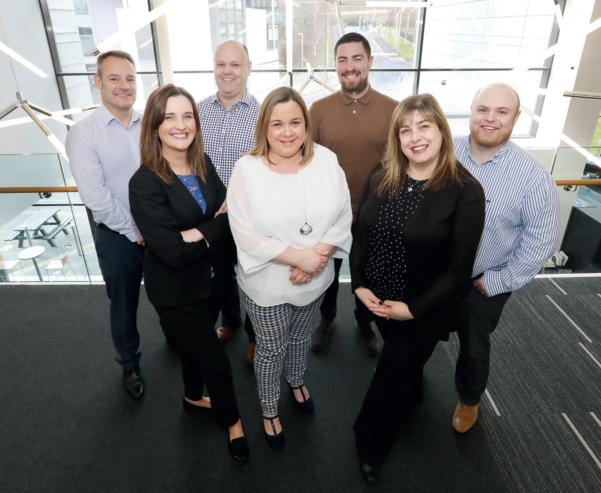Columnist Jane Shaw The Elmfield Institute
How Can Radical Acceptance Help Our Wellbeing? “I was born when all I once feared, I could love.”
My business partner at the time questioned using a promotional photo of me without hair, suggesting it portrayed a picture of sickness which wouldn’t be good for the brand image of our wellbeing conference. I was enraged. However, this experience also helped to confirm my inner belief that I should hide away. I felt I wasn’t good enough, or well enough, to be seen. Over the last five years, I have really noticed what it feels like to look different. In this way, this experience has also been a great opportunity to learn. I have had to dig very deep to connect with a deeper, stronger part of myself. Pre-COVID, I was invited to present at a NI Chamber networking event. Just before I arrived at the meeting, an old picture of me flashed up on my Facebook page. It had been taken 10 years ago, showing my long, healthy, abundant hair. In that moment, I realised just how much my lack of hair made me feel anxious and fearful. I still truly hated not having hair. It was still gnawing at the core of my being, telling me to hide away and separating me from others. What does radical acceptance mean? On that occasion, for me, it meant not having to be perfect and feeling okay enough to stand up – with no hair – and be present to the business group. I felt vulnerable and nervous. But when I shared my story, the warmth reflected back to me from the room told me that it is okay to be vulnerable. It was an empowering act of connection which reminded me of Rabia’s words: “I was born when all I once feared, I could love.”
(Rabia of Basra, c. 717-801)
T
hese words of Rabia of Basra speak to the need to accept ourselves more through radical acceptance. The concept of radical acceptance originates in Buddhism and was highlighted through the work of psychologist Carl Rogers but the idea is very simple. Acknowledge what is happening and move on. It tells us not to get attached to the current situation nor the story behind it. It is not an easy practice, but to my mind, one worth pursuing. I lost my hair to alopecia a few years ago. I used to have long, thick, silky brown hair with a few greying streaks. I was devastated when it all fell out, but there was little I could do. I chose not to wear a wig. I hate having things on my head. For me, it also felt false, a fake version of myself. And yet, I hated being seen without hair. Seemingly small changes in our physical wellbeing can apparently have large effects on our functionality and behaviour. I struggled with how I could be authentic, dropping protective personas such as wearing a wig, and express more of my true self while having no hair. This was a process of learning how to stay true to my nature without disappearing and hiding away. Radical acceptance is not about giving up or giving in, rather acknowledging and accepting what is happening in the present moment. This is not to say I don’t strive to improve myself, learn new skills, work on my personal growth and development rather it is to not diminish myself unnecessarily. I am a continual work in progress, evolving and growing as a plant might. A tree doesn’t worry about what other trees think of it. It grows to be the best tree it can be given the environmental conditions. Thinking back over the last five years, I see now that my alopecia initially caused me to withdraw inward and I stopped going out. Fewer people would see me if I didn’t go out. My alopecia reflected a disconnection – a splitting off and fragmentation. Luckily, some ease developed when I was teaching groups of therapists, so I could continue my work. But in big groups or in general public environments, I still felt anxious and overexposed. I felt different and separated from others. I recall running a large conference soon after I lost my hair.
“Radical acceptance is not about giving up or giving in, rather acknowledging and accepting what is happening in the present moment.” 48
PAGE48.indd 2
06/07/2021 15:39


























